At the end of 2020, the Consumer Financial Protection Bureau (CFPB) issued the final rules to implement the Fair Debt Collection Practices Act (FDCPA).
In light of the economic fallout caused by the COVID-19 pandemic, these new rules specifically amend Regulation F of the FDCPA and will change the way collectors communicate with consumers. Though the CFPB is working to delay the implementation of these new rulings until 2022, businesses and organizations that utilize accounts receivable systems need to start preparing for the shift.
What are the new rules set forth by the Consumer Financial Protection Bureau, and what will they mean for your debt collection practices? Kinum, Inc. explores everything you need to know about the new CFPB rules. Let’s get started!
Rule #1: Communicating with Consumer Reporting Agencies
Debt collectors have long reported to consumer reporting agencies (CRAs) as an attempt to encourage delinquent borrowers to settle their debt. Under the new requirements of the FDCPA, debt collectors will no longer be able to furnish consumer information to CRAs without taking a series of preliminary steps.
Here’s a breakdown of what debt collectors are now required to do before furnishing information to a CRA:
- Debt collectors will first have to communicate with a consumer via telephone, electronic message, or letter.
- Collectors who communicate through electronic messages or written letters must allow a reasonable amount of time to pass for the consumer to respond. (Generally, about 2 weeks.)
Debt collectors are also prohibited from suing or threatening legal action for debt that is no longer legally collectable. They will be liable should they sue or threaten to sue a consumer for time-barred debt.
Why Does This Matter?
Consumer reporting agencies collect consumer information and report it to credit bureaus, banks, lenders, employers, government agencies, insurance companies, or any other organization that dole out or analyze credit scores. Debt collectors have long furnished information to CRAs as an aggressive attempt to encourage delinquent borrowers to settle their debt ‒ or otherwise disrupt or inhibit a consumer’s ability to secure loans, credit cards, or even housing and employment.
When the new ruling goes into effect later this year or in 2022, collectors will no longer be able to furnish information to CRAs as a go-to collections practice without proactively informing consumers first.
Electronic Communications & Social Media
In November 2021, collectors will also be able to reach out to consumers through social media, email, and text communications.
Because collectors will be required to communicate with consumers before reporting to CRAs, it’s likely there could be an uptick in electronic communication between collectors and consumers via email, text messaging, or social media.
The FDCPA still contains an outline of prohibited conduct so these types of electronic communications don’t become harassing or deceptive in nature.
Rule #2: Providing Disclosures & Validation Information
Another major revision to the FDCPA involves disclosures and validation notices. Going forward, debt collectors will be required to provide disclosure information to consumers that they don’t currently receive in the collections process. Otherwise known as a validation notice, this information must disclose the debt owed, the consumer’s rights, as well as:
- The collector’s communication disclosure, name, & mailing address.
- The correct Date of Service (DOS) or itemization date of a debt.
- All payments & interests incurred from DOS or itemization date.
Under the CFPB’s new ruling, written or electronic validation information must be legible. Collectors who communicate with consumers via phone must also disclose this information at a volume and speed that is easily comprehensible for consumers.
A validation period begins when the collector assumes the consumer received their validation notice. There will also be timing and delivery requirements imposed on the validation information.
When Will the CFPB Rules Go into Effect?
The Consumer Financial Protection Bureau’s Final Rule is set to take effect on November 30, 2021. However, the CFPB has proposed delaying the Final Rule until January 2022 to allow consumers more time to prepare.
How Can You Prepare for the CFPB’s Final Rule?
What can you do to refine your accounts receivable strategy so your business adheres to the new CFPB rulings?
First, consider switching to an automated billing system to reduce paperwork and minimize errors in date and itemization recordings. An automated billing system can integrate a customer or patient portal, making it easier for clients to access and pay off their invoices before having to reach out to them with a formal validation notice.
Consider updating your financial policy or offering payment plans. By collecting payments in smaller increments, or expecting a deposit or upfront payment prior to service, you can reduce the likelihood of late or delinquent payments.
No matter your financial policy, make sure you provide transparent communication so your clients aren’t caught off guard by surprise validation notices in the form of phone calls, written letters, or electronic correspondence. If you are using a collection agency, let your clients know if their account is not resolved, that your process dictates that delinquent accounts be sent to a collection agency. At that point, a series of measures that will soon follow could possibly negatively affect them if not resolved in a timely basis.
Hire a Collection Agency
Despite your best efforts, late and delinquent debt is a reality of running an accounts receivable system. The new rules set by the Consumer Financial Protection Bureau will create extra steps for collectors to take before they pursue more drastic collection measures. To streamline your collections practice, consider working with a collection agency that already incorporates the types of practices we will be seeing in the future as the result of the new CFPB rulings.
The Kinum Complete System is designed to help your organization maintain transparency and streamline communication with clients throughout the collections process. To learn more about how our system can work for your A/R system in the future, contact us today!






